Story vs. Storey
What is the difference?
Story and storey are two commonly confused words in the English language. How do you know when to use each one?
The two words have almost identical spellings, and are pronounced in the same way. Both words are nouns, but the definitions are not related at all! One is used to talk about events, and the other is used to describe buildings. It is important to learn the difference, because if you mix them up you might not be understood.
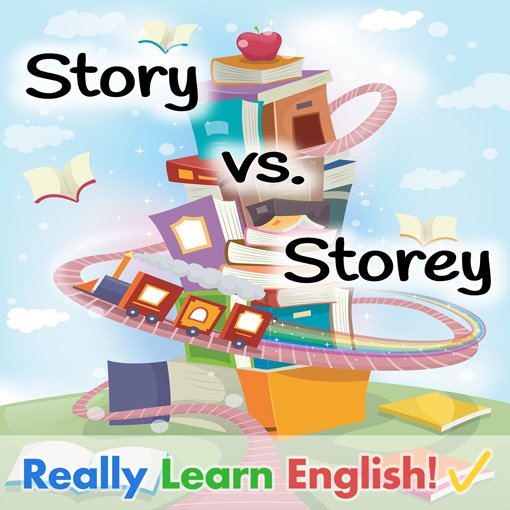
Let's look at some examples of each word.
Click Here for Step-by-Step Rules, Stories and Exercises to Practice All English Tenses
Story
Story has two definitions. On the one hand, it can mean a description of events, whether real or imaginary.

(Keep in mind that story is not the same as history, which is the study of events from the past.)
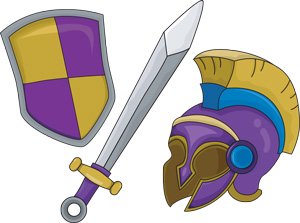
Story also means news report or news article. We can read stories in newspapers and magazines and listen to them on the radio or via television broadcasts.

Collocations
You cannot "say" a story, only "tell" a story. Other common collocations are listen to a story, hear a story and follow a story. And of course, writers write stories.

Examples
- Most people find the story of Romeo and Juliet very moving, because everyone wants to believe in true love. (People relate to the events in Romeo and Juliet, because the play is about love.)
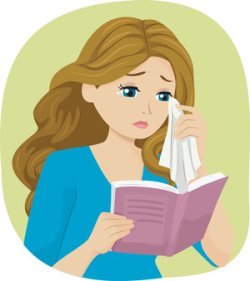
- I didn't like the movie, because I thought the story was kind of boring. (I didn't like the film, because the plot wasn't very interesting.)

- When I was a child, I loved listening to my mother's stories about her childhood on the farm. (I used to love listening to my mother talk about her childhood on the farm.)

- Heather's friends laughed when she told them the story about what happened to her over the weekend. (Heather's friends thought her description of the weekend was very funny.)

- The local newspaper is going to publish a story about the new library. (The local newspaper is writing an article about the new library.)

- Did you hear the latest story about the Mayor? (Have you heard about what the Mayor did?)

Storey
Storey refers to the level of a building. It is a synonym for floor (not floor as in ground, but floor as in the level of a building where you live). Storey can be combined with other words to form compound nouns such as two-storey house or multi-storey parking lot. The word storey is very common in the United Kingdom. Most Americans usually say floor for this meaning.
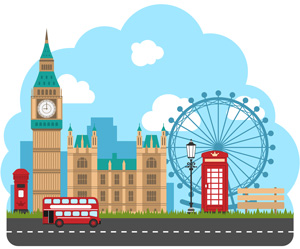
Collocations
- lower storey
- upper storey
- top storey
- first/second/third (etc.) storey
- single/one/two (etc.) storey houses/buildings
- one/two/three (etc.) storey high
- on a/the storey
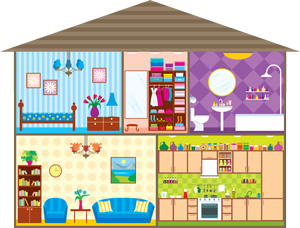
Examples
- I live on the third storey of a ten-storey building. (My building has ten floors, and I live on the third.)
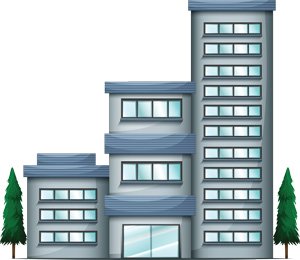
- The Johnsons live on the top storey of their building, and have a magnificent view of the park. (The Johnson family has a great view, because they live on the top floor of their building.)
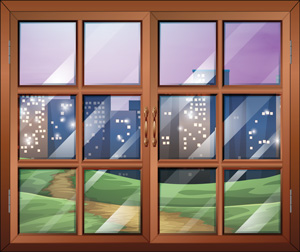
- Susannah doesn't like living on a high storey, because she has a fear of heights. (Susannah doesn't like living high up, because it makes her nervous.)
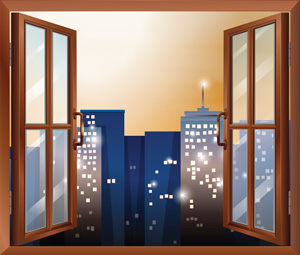
- Do you prefer to live on low storey or a high storey? (Do you like living on a low floor better, or a high floor?)

Tips
As you can see, story and storey mean very different things. If you have trouble remembering which word is which, remember that the longer word, storey with an "e", describes something much bigger.
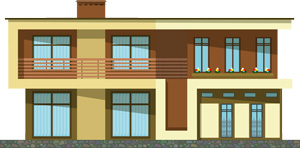
A Story to Practice Story vs. Storey
Kevin always loved to read stories. When he was a child, his favorite thing to do was to spend long afternoons in the multi-storey library down the street from his house. He spent many hours in the library's first storey reading stories about heroes, explorers and adventurers. The library also let him borrow audio books, so when he got home he would listen to stories before he went to bed.
As he got older, he started heading to the library's second storey to read newspaper stories about current events. Eventually he realized that he wanted to become a journalist and write his own stories. Today he works on the top storey of an office building downtown and writes stories about politics, business and important events.

Quiz
Answer the following 10 questions and then check your answers. Each question is worth 10 points.
Part 1:
- Which of the following is NOT a correct definition of story?
- The events of a book or movie.
- A series of imaginary events.
- An article in a newspaper.
- The study of events from the past.
- Which of the following is a correct definition of storey?
- The level of a building.
- A building with a lot of floors.
- A very tall building.
- A building with only one floor.
- Which sentence is written correctly?
- My sister said an interesting story yesterday.
- I heard a sad story on the radio this morning.
- What newspaper was the storey in?
- I don't like living on such a high story.
- Which of the following is written incorrectly?
- Janice lives on the third storey of her building.
- As a child, my favorite story was Jack and the Beanstalk.
- Did you read the storey about the Oscars?
- I like living on a high storey because I have a great view.
Part 2:
- Which of the following is true about story and storey?
- They are pronounced in the same way.
- In some situations, you can use both.
- They are more common in the United Kingdom.
- They can both be used as adjectives.
- Which of the following is NOT true about story and storey?
- They are both nouns.
- They mean very different things.
- They have similar meanings.
- They are pronounced identically.
Part 3:
- Victor works on the ____________ of the office building.
- second-story
- second-stories
- storey
- second-storey
- The movie Titanic ____________ of a shipwreck.
- tells the story
- says the story
- tells the storey
- says the storey
- Children love listening to their grandparents' ____________.
- storey
- stories
- storeys
- histories
- I parked my car on the ____________ of the ____________ parking lot.
- top story; multi-story
- top storey; multi-storey
- top storey; multi-story
- top story; multi-storey
Answer Key
Part 1: 1. D | 2. A | 3. B | 4. C
Part 2: 1. A | 2. C
Part 3: 1. D | 2. A | 3. B | 4. B
Get Updates, Special Offers, and English Resources
Download your FREE GIFT (the first two chapters of
English Short Stories Book and Workbook)
as soon as you join!

By submitting your email, you consent to receiving updates and newsletters from us and to the sharing of your personal data with third parties for the purposes of sending you communications. We will not spam you. You can unsubscribe at any time. For more information, please see our privacy policy.





